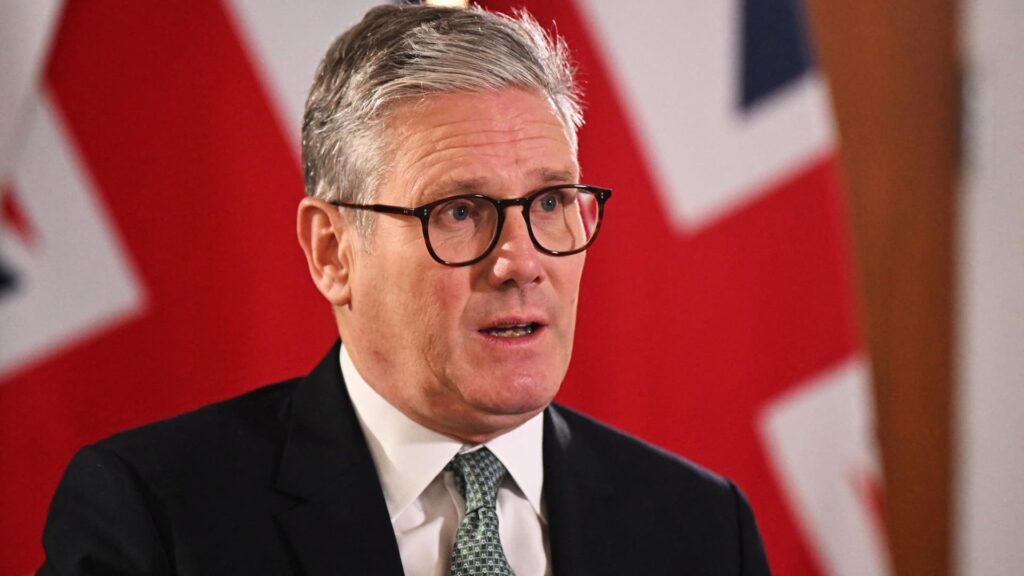British Prime Minister Keir Starmer responds to a media interview while attending the 79th United Nations General Assembly held at the United Nations Headquarters in New York, United States, on September 25, 2024.
Leon Neal | via Reuters
LONDON — Britain is building its own challenger to OpenAI and significantly boosting its national computing infrastructure as Prime Minister Keir Starmer’s government aims to become a world leader in artificial intelligence.
Mr Starmer is expected to visit Bristol, UK, on Monday to announce the pledge, which follows British tech investor Matt Clifford’s creation of an AI Opportunity Action Plan. The plan aims to help the UK harness the potential of AI.
The government will expand data center capacity across the UK, primarily to facilitate developers of powerful AI models that rely on high-performance computing equipment hosted in remote locations to train and run their systems. I’m trying.
A target has been set to increase the UK’s ‘sovereign’, or public sector, computing capacity by 20 times by 2030. As part of its commitment, the Government will begin opening up access to the AI Research Resource, an initiative aimed at strengthening the UK’s computing infrastructure.
Last year, Starmer’s government canceled £1.3bn of taxpayer-funded spending commitments on two key computing initiatives to prioritize other financial plans. AI research resources and a next-generation “exascale” supercomputer project were promised under Starmer’s predecessor, Rishi Sunak.
Sovereign AI has become a hot topic for policymakers, especially in Europe. The term refers to the idea that technologies essential to economic growth and national security should be built and developed in countries where people are adopting them.
To further strengthen the UK’s computing infrastructure, the government has also promised to set up a number of AI ‘growth zones’, where rules around planning permission will be relaxed in certain locations and new data centres Construction becomes possible.
Meanwhile, an AI Energy Council, made up of industry leaders in both energy and AI, will be established to consider the role of low-carbon energy sources such as renewable energy sources and nuclear power.

Building a challenger to OpenAI
The last major initiative proposed by the UK government is to create a homegrown AI “champion” on par with the US tech giant, responsible for the foundational AI models that power today’s generative AI tools, such as OpenAI’s ChatGPT. It was to do.
The UK will use AI Growth Zones and a newly established National Data Library to connect public institutions such as universities to strengthen the country’s ability to create “sovereign” AI models that are independent of Silicon Valley. are planning.
It is worth highlighting that the UK faces serious challenges in creating an effective OpenAI alternative. As an example, several entrepreneurs in the country have lamented funding issues that have made it difficult for startups in the country to raise the kind of funding available for AI success stories.
Many founders and venture capitalists in the UK want the country’s pension funds to allocate a larger portion of their portfolios to riskier, growth-focused start-ups, and the government has been pushing for this reform for some time. I had promised that.
“There’s $7 trillion sitting in the UK,” Magnus Grimeland, CEO and founder of venture capital firm Antler, told CNBC in an interview last year. “If you allocate just 5% of that to innovation, you’ll solve the problem.”
Despite this, UK technology leaders have generally praised the government’s AI Action Plan. Salesforce UK head Zahra Baroloumi told CNBC that the plan is a “forward-thinking strategy” and is encouraged by the government’s “bold vision for AI and focus on transparency, safety and collaboration”. He added that it has been done.
Chintan Patel, Cisco’s UK chief technology officer, said he was “encouraged” by the action plan. “Having a clearly defined roadmap is critical if the UK is to achieve its ambitions to become an AI superpower and a leading destination for AI investment,” he said.
There is still no formal regulation of AI in the UK. Starmer’s government has previously said it plans to draw up legislation on AI, but details have not yet been released.
Last month, the government announced a consultation on measures to regulate the use of copyrighted content for training AI models.
More generally, the UK is touting its differentiated regulatory regime from the EU as a positive in the wake of Brexit. This means that regulatory oversight of AI could be introduced, but in a looser way than in the EU, which has taken a more aggressive approach. Regulating technology with AI laws.



